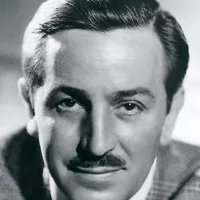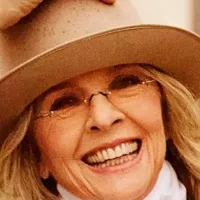Universal Pictures is an American film production and distribution company. Headquartered in Universal City, California, it operates as the flagship studio of Universal Studios, which is the film studio arm of NBCUniversal, a subsidiary of Comcast. As a major Hollywood studio, Universal Pictures produces and distributes a wide range of films globally, playing a significant role in the entertainment industry.
1908: Edison Trust Creation
In 1908, the Edison-backed Motion Picture Patents Company (or the "Edison Trust") was created, requiring exhibitors to pay fees for Trust-produced films they showed.
June 1909: Yankee Film Company Started
In June 1909, Carl Laemmle started the Yankee Film Company with his brothers-in-law Abe Stern and Julius Stern, which quickly evolved into the Independent Moving Pictures Company (IMP).
1910: Studio uses stars in marketing
In 1910, Carl Laemmle promoted Florence Lawrence, formerly known as "The Biograph Girl", and actor King Baggot, in what may be the first instance of a studio using stars in its marketing.
April 30, 1912: Universal Film Manufacturing Company Incorporated
On April 30, 1912, the Universal Film Manufacturing Company was incorporated in New York City.
June 8, 1912: Universal Company Established
On June 8, 1912, the Universal company was established in a merger of several motion picture companies, with Laemmle as the primary figure.
July 1912: Laemmle Emerges as President
In July 1912, Carl Laemmle emerged as president of the Universal Film Manufacturing Company.
1912: Production Focus Shifts to Hollywood
By the end of 1912, Universal was focusing its production efforts in the Hollywood area, following the westward trend of the industry.
1912: Universal is founded
In 1912, Universal Pictures was founded by Carl Laemmle, Mark Dintenfass, Charles O. Baumann, Adam Kessel, Pat Powers, William Swanson, David Horsley, Robert H. Cochrane and Jules Brulatour. It is the oldest surviving film studio in the United States and the fifth oldest globally.
March 15, 1915: Universal City Studios Opens
On March 15, 1915, Carl Laemmle opened the world's largest motion picture production facility, Universal City Studios, in Hollywood.
1916: Universal Forms a Three-Tier Branding System
In 1916, Universal formed a three-tier branding system for their releases to give theater owners and audiences a quick reference guide.
1917: Lon Chaney Left Universal
In 1917, Character actor Lon Chaney left Universal because of a salary dispute.
1919: Release of Blind Husbands
In 1919, Erich von Stroheim directed "Blind Husbands", for which he insisted on excessively lavish production values.
1919: Thalberg Promoted to Studio Chief
In 1919, Irving Thalberg was promoted to studio chief, improving the quality and prestige of Universal's output.
October 6, 1922: Stroheim fired from Merry-Go-Round Production
On October 6, 1922, Erich von Stroheim was fired six weeks into the production of "Merry-Go-Round (1923)" and replaced with Rupert Julian.
1922: Release of Foolish Wives
In 1922, Erich von Stroheim directed "Foolish Wives", for which he insisted on excessively lavish production values.
1923: Release of The Acquittal
In 1923, Clarence Brown's "The Acquittal" was released as a "Super-Jewel" production.
1923: Production of Merry-Go-Round
In 1923, Erich von Stroheim was fired six weeks into the production of "Merry-Go-Round" and replaced with Rupert Julian.
1923: Release of The Hunchback of Notre Dame
In 1923, Lon Chaney's made an isolated return to Universal for the release of "The Hunchback of Notre Dame".
1924: Release of A Lady of Quality
In 1924, Hobart Henley's "A Lady of Quality" was released as a "Super-Jewel" production.
1924: Thalberg moved to MGM
In 1924, Irving Thalberg continued as vice-president in charge of production for the new company, Metro-Goldwyn-Mayer.
1925: Release of The Phantom of the Opera
In 1925, Lon Chaney made an isolated return to Universal for the release of "The Phantom of the Opera".
1926: Deutsche Universal-Film AG Opened
In 1926, Universal opened a production unit in Germany, Deutsche Universal-Film AG, under the direction of Joe Pasternak.
April 1927: Laemmle Considers Clean Picture Policy a Mistake
By April 1927, Carl Laemmle considered Universal's "clean picture" policy a mistake, as "unclean pictures" from other studios generated more profit.
1927: Contract Signed for Oswald the Lucky Rabbit Cartoons
In 1927, Charles Mintz signed a contract with Universal to produce 26 "Oswald the Lucky Rabbit" cartoons, animated by Walt Disney and Ub Iwerks.
1927: Releases of Uncle Tom's Cabin and Surrender
In 1927, Harry A. Pollard's "Uncle Tom's Cabin" and Edward Sloman's "Surrender" were released as "Super-Jewel" productions.
1928: Carl Laemmle Jr. Becomes Head of Universal Pictures
In 1928, Carl Laemmle Sr. made his son, Carl Jr., head of Universal Pictures as a 21st birthday present.
1929: Releases of Show Boat and Broadway
In 1929, Universal released the part-talkie version of "Show Boat" and the lavish musical "Broadway".
1929: Universal releases the EMKA, Ltd. catalog of Paramount Pictures
Universal releases the EMKA, Ltd. catalog of 1929–1949 Paramount Pictures, owned by sister company Universal Television.
1930: Releases of King of Jazz and All Quiet on the Western Front
In 1930, Universal released "King of Jazz", the first all-color musical feature, and "All Quiet on the Western Front", which won the Best Picture Oscar.
1931: Releases of Dracula and Frankenstein
In 1931, Universal released the horror films Dracula and Frankenstein, which were part of a series that extended into the 1940s.
1932: Westerns with Tom Mix
In 1932, Universal featured westerns with Tom Mix, which ran from 1932 to 1933, as part of its lower-budget productions.
1932: Release of The Mummy
In 1932, Universal released the horror film The Mummy, which was part of a series that extended into the 1940s.
1933: Westerns with Buck Jones
In 1933, Universal featured westerns with Buck Jones, which ran from 1933 to 1936, as part of its lower-budget productions.
1933: Releases of The Invisible Man and Destination Unknown
In 1933, Universal released the horror film The Invisible Man and Tay Garnett's Destination Unknown.
1934: Release of Imitation of Life
In 1934, Universal released John M. Stahl's Imitation of Life.
1935: Release of The Good Fairy
In 1935, Universal released William Wyler's The Good Fairy.
1935: Production of Show Boat
In late 1935, production began on a lavish version of Show Boat, a remake of the earlier 1929 part-talkie production.
April 2, 1936: Standard Capital Forecloses on Universal
On April 2, 1936, Standard Capital Corporation foreclosed on Universal, seizing control of the studio after the Laemmles could not repay a production loan.
1936: Closure of Deutsche Universal-Film AG
In 1936, Deutsche Universal-Film AG migrated to Hungary and then Austria in the face of Hitler's increasing domination of central Europe.
1936: Release of Show Boat and Change in Ownership
In 1936, Universal's Show Boat was released to critical and financial success, but the Laemmles were removed from the company, and Standard Capital's J. Cheever Cowdin took over as president and chairman of the board.
1936: Deanna Durbin Stars in Three Smart Girls
In 1936, teenage singer Deanna Durbin starred in producer Joe Pasternak's first American film, "Three Smart Girls". The film was a box-office hit that reportedly resolved the studio's financial problems and led Universal to offer Durbin a contract.
1938: Series of Lower-Budget Productions
In 1938, Universal concentrated on lower-budget productions. This included action features and serials such as "The Dead End Kids and Little Tough Guys" (1938-43), "Baby Sandy" (1938-41), comedies with Hugh Herbert (1938-42), musicals with Robert Paige, Jane Frazee, The Andrews Sisters, and The Merry Macs (1938-45), and westerns with Bob Baker (1938-39) and Johnny Mack Brown (1938-43).
1939: Gloria Jean Signed for Musicals and Destry Rides Again Released
In 1939, Universal signed 13-year-old Gloria Jean for a series of musicals. Also in 1939, the popular Universal film "Destry Rides Again", starring James Stewart and Marlene Dietrich, was released.
1940: The Ritz Brothers Series
In 1940, Universal featured comedies with The Ritz Brothers, which ran from 1940 to 1943, as part of its lower-budget productions.
1940: Creation of Woody Woodpecker
In 1940, Universal's in-house animation studio, headed by Walter Lantz, created Woody Woodpecker.
1941: Abbott and Costello Star in Buck Privates
In 1941, Abbott and Costello's military comedy "Buck Privates" gave the comedians a national and international profile.
1942: Use of Technicolor in Arabian Nights
In 1942, Universal made use of the three-strip Technicolor process for the first time in the film "Arabian Nights", starring Jon Hall and Maria Montez.
1942: Sherlock Holmes Mysteries, Teenage Musicals, and Saboteur
In 1942, Universal released Sherlock Holmes mysteries starring Basil Rathbone and Nigel Bruce (1942-46), teenage musicals with Gloria Jean, Donald O'Connor, and Peggy Ryan (1942-43). Alfred Hitchcock was borrowed for the film "Saboteur" (1942).
1943: Inner Sanctum Mysteries and Shadow of a Doubt
In 1943, Universal released screen adaptations of radio's Inner Sanctum Mysteries with Lon Chaney Jr. (1943-45). Alfred Hitchcock was borrowed for the film "Shadow of a Doubt" (1943).
1943: Technicolor Used for Phantom of the Opera Remake
In 1943, Universal used Technicolor for the studio's remake of their 1925 horror melodrama, "Phantom of the Opera" with Claude Rains and Nelson Eddy.
1944: Westerns with Rod Cameron
In 1944, Universal featured westerns with Rod Cameron, which ran from 1944 to 1945, as part of its lower-budget productions.
1945: J. Arthur Rank Buys Stake in Four-Way Merger
In 1945, J. Arthur Rank, who already owned a stake in the studio, bought into a four-way merger with Universal, International Pictures, and producer Kenneth Young, creating United World Pictures.
July 30, 1946: Merger Announced: Universal-International Pictures
On July 30, 1946, the reorganization of Universal as Universal-International was announced. William Goetz became head of production, shifting focus away from low-budget productions.
1946: Westerns with Kirby Grant
In 1946, Universal featured westerns with Kirby Grant, which ran from 1946 to 1947, as part of its lower-budget productions.
1946: Universal-International Distributes Rank's British Productions
In 1946, Universal-International became responsible for the American distribution of J. Arthur Rank's British productions, including "Great Expectations".
1947: The Egg and I Released
In 1947, Universal released "The Egg and I", which later led to the Ma and Pa Kettle spin-off series.
1947: Universal-International Buys Stake in Castle Films
In 1947, Universal-International branched out into the non-theatrical field, buying a majority stake in home-movie dealer Castle Films.
1948: The Naked City and Abbott and Costello Meet Frankenstein Released
In 1948, "The Naked City", produced by Mark Hellinger, was released. "Abbott and Costello Meet Frankenstein" was also one of the studio's top-grossing productions that year.
1948: Distribution of Hamlet
In 1948, Universal-International became responsible for the American distribution of Laurence Olivier's "Hamlet".
1948: U.S. vs Paramount Pictures Decision
In the wake of the 1948 U.S. vs. Paramount Pictures decision, other studios let their contract actors go and leading actors were increasingly free to work where and when they chose.
1949: Ma and Pa Kettle Series Begins
In 1949, Universal returned to low-budget and series films, including the Ma and Pa Kettle series, a spin-off of the studio's 1947 hit "The Egg and I".
1949: Universal releases the EMKA, Ltd. catalog of Paramount Pictures
Universal releases the EMKA, Ltd. catalog of 1929–1949 Paramount Pictures, owned by sister company Universal Television.
1950: Lew Wasserman's Deal with James Stewart
In 1950, MCA agent Lew Wasserman made a deal with Universal for his client James Stewart, giving Stewart a share in the profits of three pictures in lieu of a large salary. One of those films, Winchester '73 (1950), proved to be a hit, and the arrangement would become the rule for many future productions at Universal and eventually at other studios as well.
1950: Francis Series Begins
In 1950, Universal's inexpensive Francis series, the first film of a series about a talking mule, became mainstays of the company.
1951: Takeover of Castle Films
In 1951, Universal-International took over Castle Films entirely. Castle would offer highlights reels from the Universal film library to home-movie enthusiasts and collectors for three decades.
1952: Decca Records Takes Control of Universal
In 1952, J. Arthur Rank sold his shares to Milton Rackmil, whose Decca Records took full control of Universal.
1958: Universal Sells Studio Lot to MCA
In 1958, Universal sold its 360-acre studio lot to MCA for $11 million, and it was renamed Revue Studios.
1962: Takeover of Universal Pictures by MCA, Inc.
In mid-1962, the long-awaited takeover of Universal Pictures by MCA, Inc. happened as part of the MCA-Decca Records merger.
1963: Formation of Universal City Studios, Inc.
In 1963, MCA formed Universal City Studios, Inc., merging the motion pictures and television arms of Universal Pictures Company and Revue Studios (Universal Television).
1964: Launch of Studio Tour Subsidiary
In 1964, Universal launched a studio tour subsidiary.
1969: Anne of the Thousand Days Released
In 1969, Hal B. Wallis produced a lavish version of Maxwell Anderson's "Anne of the Thousand Days" at Universal. The film received Academy Award nominations.
1970: Release of 'Airport'
In 1970, Universal produced occasional hits, one of them being the release of the film 'Airport'.
1971: Mary, Queen of Scots Released
In 1971, Hal B. Wallis produced "Mary, Queen of Scots" at Universal. The film received Academy Award nominations.
1973: Co-production of The Day of the Jackal
In 1973, Universal Productions France S.A. was involved in the French co-production of Fred Zinnemann's "The Day of the Jackal".
1973: Releases of 'The Sting' and 'American Graffiti'
In 1973, Universal produced the occasional hits 'The Sting' and 'American Graffiti'.
1974: Co-production of Les Valseuses
In 1974, Universal Productions France S.A. was involved in the French co-production of Bertrand Blier's "Les Valseuses" (English title "Going Places").
1975: Rooster Cogburn Released
In 1975, Hal B. Wallis retired from Universal after making the film "Rooster Cogburn", a sequel to "True Grit".
1975: Release of 'Jaws'
In 1975, the film 'Jaws' was released, restoring the company's fortunes as a big box-office success.
1977: Release of 'Smokey and the Bandit'
In 1977, the film 'Smokey and the Bandit' was released as one of the film hits.
1978: Release of 'Animal House'
In 1978, the film 'Animal House' was released.
1979: Release of 'The Jerk'
In 1979, the film 'The Jerk' was released.
1980: Release of 'The Blues Brothers'
In 1980, the film 'The Blues Brothers' was released.
1981: MGM Purchase of United Artists and Release of 'The Four Seasons'
In 1981, Metro-Goldwyn-Mayer purchased United Artists, and Universal released 'The Four Seasons'.
1982: Universal Becomes Base for Tandem Productions/Embassy Television
In 1982, Universal became the studio base for many shows that were produced by Norman Lear's Tandem Productions/Embassy Television, including Diff'rent Strokes, One Day at a Time, The Jeffersons, The Facts of Life, and Silver Spoons.
1982: Release of 'E.T. the Extra-Terrestrial'
In 1982, the film 'E.T. the Extra-Terrestrial' was released as one of the film hits.
1983: Launch of Universal Classics
In 1983, Universal Pictures launched an independent film arm designed to release specialty films, Universal Classics.
1983: Release of 'Scarface'
In 1983, the film 'Scarface' was released and turned out to be a box office disappointment despite its high budget.
1984: Release of 'Dune'
In 1984, the film 'Dune' was released and turned out to be a box office disappointment despite its high budget.
1985: Releases of 'The Breakfast Club' and 'Back to the Future'
In 1985, the films 'The Breakfast Club' and 'Back to the Future' were released.
1986: 25 Billion Admission Tickets Clocked in China
In 1986, consumer reach in China was measured in terms of the 25 billion admission tickets that were clocked.
1986: Release of 'An American Tail'
In 1986, the film 'An American Tail' was released.
1987: Cable Television Agreement with New Line Cinema
In 1987, Universal Pay Television spawned an 11-picture cable television agreement with then-independent film studio New Line Cinema.
1987: Marketing Feature Film and Television Products to China
In 1987, Universal Pictures, MGM/UA Communications Co., and Paramount Pictures teamed up to market feature film and television products to China.
1988: Release of 'The Land Before Time'
In 1988, the film 'The Land Before Time' was released.
1990: Matsushita Electric acquires MCA
In 1990, Matsushita Electric (now known as Panasonic) acquired MCA for $6.6 billion.
1993: Release of 'Jurassic Park'
In 1993, the film 'Jurassic Park' was released.
1995: Release of 'Casper'
In 1995, the film 'Casper' was released.
December 9, 1996: MCA name dropped, becomes Universal Studios, Inc.
On December 9, 1996, the MCA name was dropped and the company became Universal Studios, Inc. MCA's music division became Universal Music Group, while MCA Records continued as a label.
1997: UIP began distributing films by DreamWorks
In 1997, UIP began distributing films by start-up studio DreamWorks due to the founders' connections with Paramount, Universal, and Amblin Entertainment.
October 4, 1999: Universal renews commitments to United International Pictures
On October 4, 1999, Universal renewed its commitment to United International Pictures to release its films internationally through 2006.
1999: Seagram buys PolyGram from Philips
In 1999, Seagram bought PolyGram from Philips and other entertainment properties, hoping to build an entertainment empire around Universal.
2000: New York Film Academy was permitted to use the Universal Studios backlot
In late 2000, the New York Film Academy was permitted to use the Universal Studios backlot for student film projects in an unofficial partnership.
2001: MGM leaves UIP venture.
In 2001, MGM dropped out of the UIP venture and went with 20th Century Fox's international arm to handle the distribution of their titles.
2001: Universal Pictures acquired US distribution rights of StudioCanal's films
In 2001, Universal Pictures acquired the United States distribution rights of several of StudioCanal's films, such as David Lynch's Mulholland Drive and Brotherhood of the Wolf.
2003: Release of 'Love Actually'
In 2003, Universal Pictures and StudioCanal co-produced 'Love Actually', a $40 million budgeted film that grossed $246 million worldwide.
2005: Paramount Pictures acquired DreamWorks SKG
In late 2005, Viacom's Paramount Pictures acquired DreamWorks SKG after acquisition talks between GE and DreamWorks stalled.
February 2006: NBCUniversal Sells Disney-animated Oswald Cartoons
In February 2006, NBCUniversal sold all the Disney-animated Oswald cartoons, along with the rights to the character himself, to The Walt Disney Company.
2006: Stacey Snider leaves Universal to head DreamWorks
In early 2006, Universal's long-time chairperson, Stacey Snider, left the company to head up DreamWorks, and was replaced by Marc Shmuger and David Linde.
2006: Universal renewed commitments to United International Pictures to release its films internationally through 2006.
On October 4, 1999, Universal renewed its commitment to United International Pictures to release its films internationally through 2006.
October 5, 2009: Marc Shmuger and David Linde ousted, Adam Fogelson appointed chairperson
On October 5, 2009, Marc Shmuger and David Linde were ousted from their co-chairperson jobs, and Adam Fogelson became the single chairperson. Donna Langley was also upped to co-chairperson.
September 2013: Adam Fogelson ousted, Donna Langley promoted, Jeff Shell appointed
In September 2013, Adam Fogelson was ousted as co-chairman of Universal Pictures, promoting Donna Langley to sole chairperson. Jeff Shell was appointed chairman of the Filmed Entertainment Group, and Ron Meyer became vice chairman of NBCUniversal.
2013: Expiration of film financing deal and agreement with Legendary Pictures
In 2013, Universal's multi-year film financing deal with Elliott Management expired. In summer 2013, Universal made an agreement with Legendary Pictures to distribute their films for five years starting in 2014.
June 2014: Universal Partnerships took over licensing consumer products for NBC and Sprout
In June 2014, Universal Partnerships took over licensing consumer products for NBC and Sprout.
2014: Agreement with Legendary Pictures
In summer 2013, Universal made an agreement with Thomas Tull's Legendary Pictures to distribute their films for five years starting in 2014.
May 2015: Gramercy Pictures revived by Focus Features
In May 2015, Gramercy Pictures was revived by Focus Features as a genre label concentrating on action, sci-fi, and horror films.
December 16, 2015: Amblin Partners announced distribution deal with Universal Pictures
On December 16, 2015, Amblin Partners announced it entered into a five-year distribution deal with Universal Pictures.
2015: First studio to release three billion-dollar films in one year
In 2015, Universal was the first studio to have released three billion-dollar films in one year; Furious 7, Jurassic World, and Minions.
April 28, 2016: NBCUniversal announced deal to buy DreamWorks Animation
On April 28, 2016, Universal's parent company, NBCUniversal, announced a $3.8 billion deal to buy DreamWorks Animation.
August 22, 2016: Deal to buy DreamWorks Animation completed
On August 22, 2016, the deal to buy DreamWorks Animation was completed.
2016: Perfect World Pictures co-financing deal with Universal
In early 2016, Perfect World Pictures announced a long-term co-financing deal with Universal, marking the first time a Chinese company directly invested in a multi-year slate deal with a major U.S. studio.
February 15, 2017: Universal Pictures acquired minority stake in Amblin Partners
On February 15, 2017, Universal Pictures acquired a minority stake in Amblin Partners, strengthening their relationship.
December 2019: Universal Pictures entered negotiations to distribute Lego films
In December 2019, Universal Pictures entered early negotiations to distribute upcoming feature films based on the Lego toys.
2019: Universal took over the distribution deal with DreamWorks Animation
Universal took over the distribution deal with DreamWorks Animation starting in 2019 with the release of How to Train Your Dragon: The Hidden World.
June 2020: Duncan Clark to step down as Universal International Distribution President
In June 2020, it was announced that Duncan Clark, longtime Universal International Distribution President, would be stepping down. He would transition to a consulting role with the studio in August and would be replaced by Veronika Kwan Vandenberg.
2024: Release of 'Piece by Piece'
In December 2019, Universal Pictures entered early negotiations to distribute upcoming feature films based on the Lego toys and the first Lego film under Universal Pictures' run of their film rights is Piece by Piece (2024).
Mentioned in this timeline
Lego is a line of plastic construction toys created by...

Walter Elias Disney was a highly influential American animator film...
The United States of America is a federal republic located...
The National Broadcasting Company NBC is a major American commercial...
Germany officially the Federal Republic of Germany is a nation...
China officially the People's Republic of China is an East...
Trending

1 minute ago Joe Rogan Interviews RFK Jr. on Trump's ICE Raids and US Taxpayer Losses.

2 minutes ago Joki? Confronts Dort After Trip, Tempers Flare in Nuggets-Thunder Game

2 minutes ago Arizona Dominates Kansas to Secure Share of Big 12 Title in Basketball Game

2 minutes ago Gui Santos Secures 3-Year, $15M Deal with Warriors; Curry Issues Warning

2 minutes ago Kawhi Leonard potentially playing vs Pelicans; Zach Lowe praises All-NBA caliber.

1 hour ago Ashley Padilla shares life lessons learned as Diane Keaton's assistant on SNL.
Popular

Jesse Jackson is an American civil rights activist politician and...

Hillary Diane Rodham Clinton is a prominent American politician lawyer...

Jim Carrey is a Canadian-American actor and comedian celebrated for...

XXXTentacion born Jahseh Dwayne Ricardo Onfroy was a controversial yet...

Kashyap Pramod Patel is an American lawyer who became the...

Michael Joseph Jackson the King of Pop was a highly...